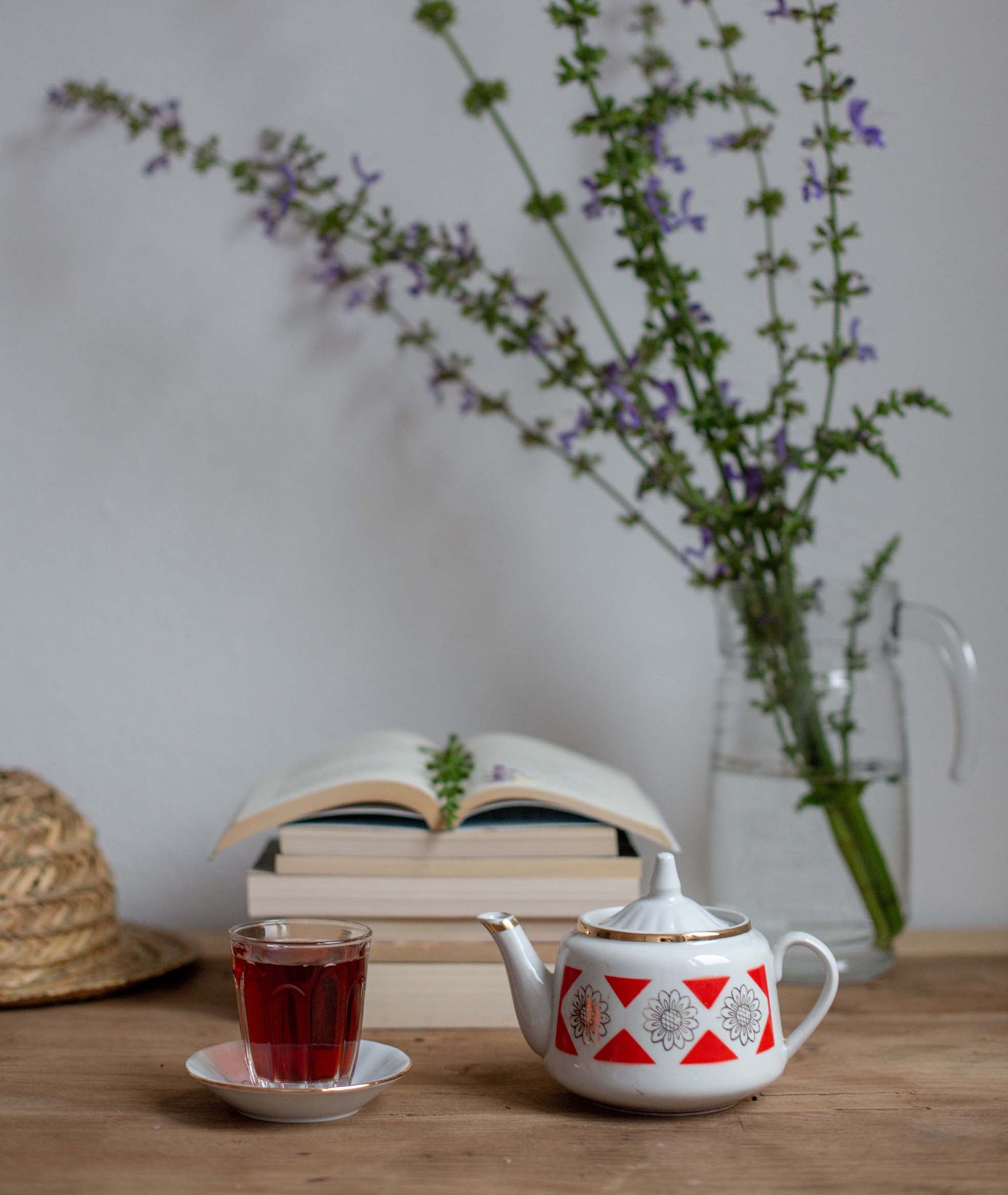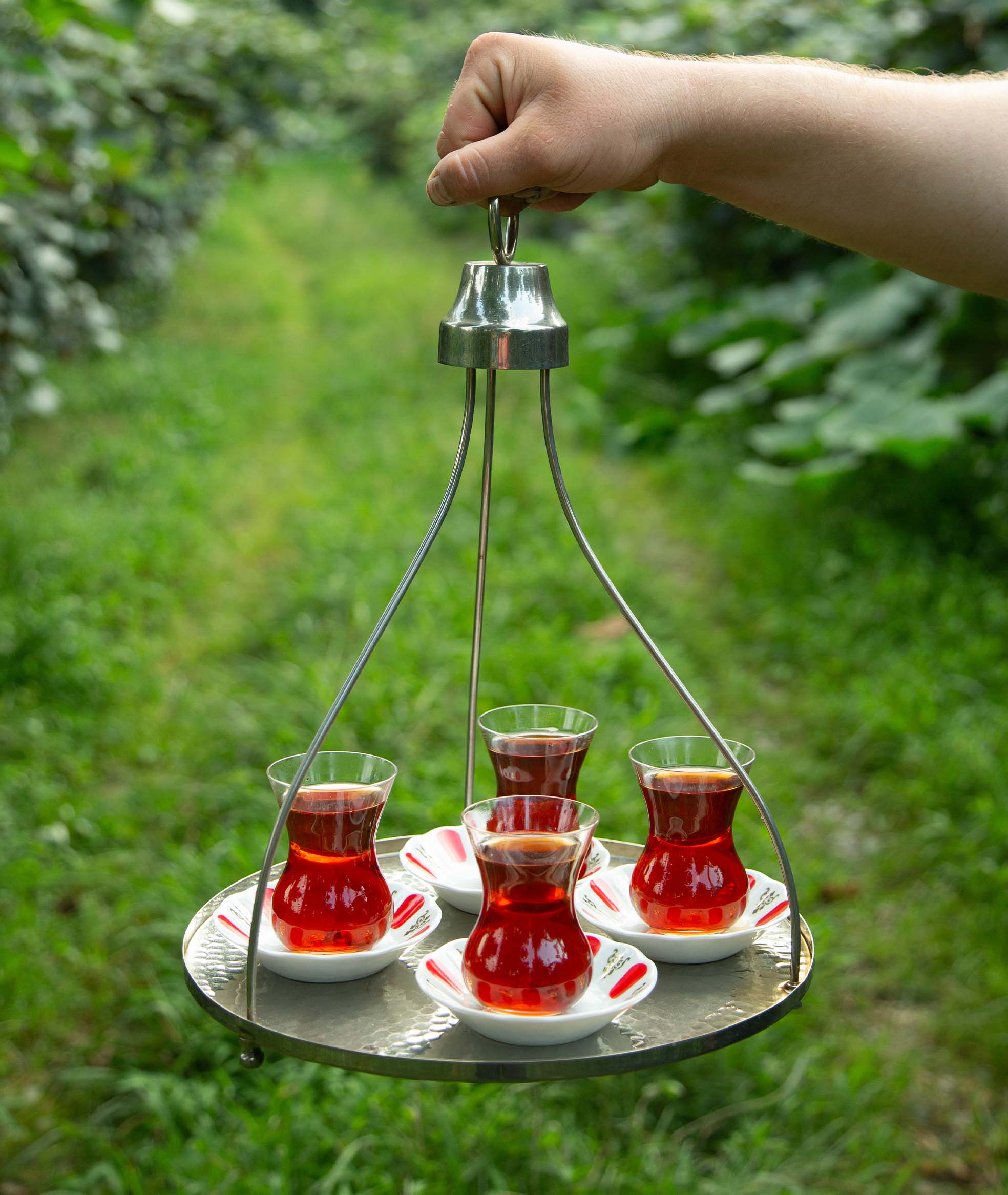
How to Brew Authentic Turkish Tea
How to Brew Authentic Turkish Tea: A Step-by-Step Guide with a Çaydanlık
If you've ever had the pleasure of sipping a cup of Lazika tea, you already know: it’s more than just a beverage—it’s a moment of warmth, sincerity, and tradition. Turkish tea, or “çay,” is brewed using a special double teapot called a çaydanlık, and served in elegant tulip-shaped glasses that turn each sip into a small ritual.
In this guide, we’ll take you through the steps of brewing real Turkish tea at home—and share the story of why those iconic glasses mean more than meets the eye.
What You’ll Need:
- A çaydanlık (double teapot)
- Loose-leaf Turkish black tea (ideally from the high gardens of Rize)
- Fresh water
- Tulip-shaped tea glasses (“ince belli”)
- Sugar cubes (optional)
Step-by-Step Turkish Tea Brewing
1. Prepare the Çaydanlık
The çaydanlık has two parts: a large kettle on the bottom for boiling water, and a smaller teapot on top for brewing the tea concentrate. This setup allows you to customize the strength of your tea to your liking.
- Fill the Bottom Kettle: Pour fresh water into the lower pot and place it on the stove to boil.
- Get the Top Teapot Ready: While the water heats up, add 1–2 tablespoons of loose-leaf Turkish tea to the top teapot. You can adjust the amount based on how strong you like your tea.
2. Brew the Concentrate
Once the water in the bottom pot reaches a boil, pour about half of it over the tea leaves in the top teapot. This begins the steeping process.
- Let It Infuse: Place the top teapot back on the lower pot and reduce the heat. Let the tea steep gently for 10–15 minutes. As it brews, it will take on a rich, amber color and a deep aroma.
3. Pour and Adjust
Your tea is now ready to serve—the Lazika way.
- Serve the Tea: First, pour the concentrated tea from the top teapot into a tulip-shaped glass. Then, add hot water from the bottom kettle to adjust the strength.
- For strong tea, add less water (“koyu çay”).
- For a lighter taste, add more water (“açık çay”).
- Add Sugar (If You Like): Turkish tea is usually served without milk. Sugar cubes are offered on the side so everyone can sweeten their tea to taste.
4. Sip Slowly and Enjoy
Turkish tea isn’t meant to be rushed—it’s meant to be savored. Whether you’re gathered with friends, hosting guests, or enjoying a peaceful break alone, a cup of tea is an invitation to pause and connect.
The Tulip-Shaped Glass: A Touch of Elegance
In Turkey, tea is traditionally served in tulip-shaped glasses called “ince belli.” More than just functional, these glasses carry a deeper cultural meaning and aesthetic.
- Form Meets Function: The curved shape makes it easy to hold without burning your fingers, while the wide base lets the amber color shine through. It also helps the tea stay warm longer.
- Cultural Symbolism: The tulip is a historic symbol of elegance, refinement, and beauty, dating back to the Ottoman era. Serving tea in tulip-shaped glasses honors this heritage with every pour.
- A Sign of Hospitality: Offering tea to a guest is a classic gesture of Turkish warmth. Serving it in a delicate glass makes the moment even more special, turning an ordinary pause into a shared ritual.
Final Thoughts: Tea, Shared from the Heart
Brewing tea with a çaydanlık isn’t just a technique—it’s a gentle tradition that connects people. It blends care, patience, and a touch of ceremony. With Lazika, every cup of tea is a reminder to slow down and cherish the simple, beautiful moments of life.
Now it’s your turn to try. Follow these steps and bring a piece of Turkish tea culture into your home—steeped in tradition, poured with love.
Afiyet olsun!



Leave a comment
This site is protected by hCaptcha and the hCaptcha Privacy Policy and Terms of Service apply.